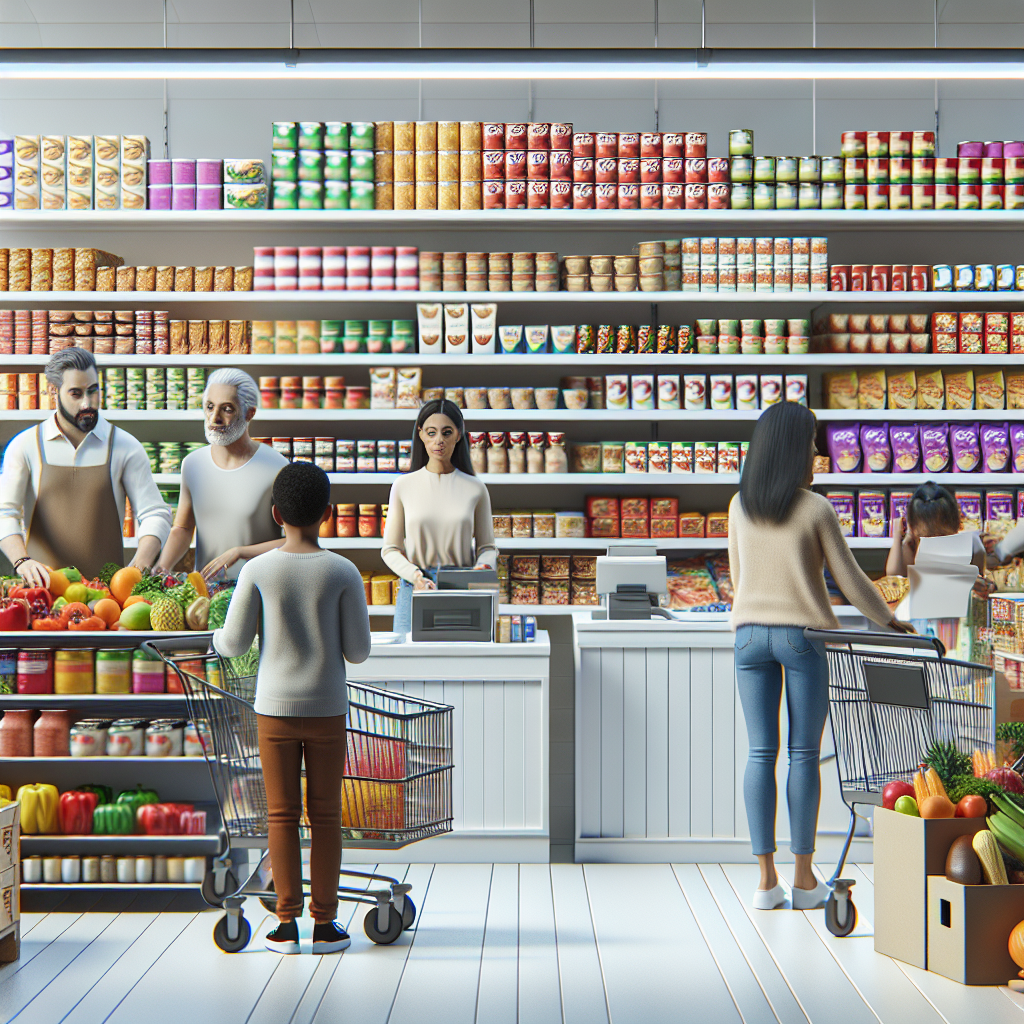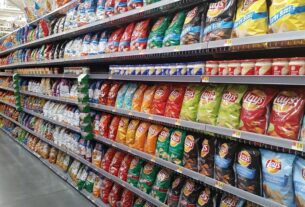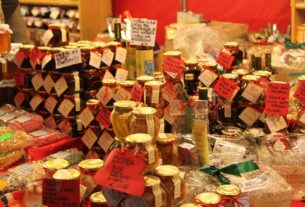The Role of Blockchain in Grocery Retail Supply Chain Transparency
The State of the Global Grocery Retail Industry in 2025
The global grocery retail industry has undergone significant changes in recent years, with technology playing a key role in shaping the future of the sector. In 2025, the industry is expected to continue to evolve, with a focus on improving supply chain transparency and efficiency. One technology that has the potential to revolutionize the grocery retail supply chain is blockchain.
What is Blockchain?
Blockchain is a decentralized, distributed ledger technology that allows for the secure and transparent recording of transactions across a network of computers. Each transaction is recorded in a “block” of data, which is linked to the previous block, creating a chain of blocks. This technology ensures that all transactions are secure, transparent, and tamper-proof.
The Role of Blockchain in Grocery Retail Supply Chain Transparency
Blockchain has the potential to improve transparency and traceability in the grocery retail supply chain in several ways. One of the key benefits of blockchain is its ability to provide a secure and immutable record of transactions, which can help to prevent fraud and ensure the authenticity of products.
For example, blockchain can be used to track the movement of products from farm to fork, allowing retailers and consumers to trace the origin of products and verify their quality and authenticity. This level of transparency can help to build trust between retailers and consumers and ensure the safety and quality of products.
Benefits of Blockchain in Grocery Retail Supply Chain
There are several benefits of using blockchain in the grocery retail supply chain, including:
1. Improved traceability: Blockchain can provide a transparent and immutable record of product movements, allowing retailers to track the origin of products and verify their authenticity.
2. Enhanced food safety: By tracking the movement of products using blockchain, retailers can quickly identify and address any issues with product quality or safety.
3. Reduced fraud: Blockchain’s secure and transparent nature can help to prevent fraud in the supply chain, such as counterfeit products or unauthorized transactions.
4. Increased efficiency: By streamlining the supply chain and reducing the need for manual processes, blockchain can help to improve efficiency and reduce costs for retailers.
Market Share and Adoption of Blockchain in Grocery Retail
The adoption of blockchain technology in the grocery retail sector is still in its early stages, but there are several companies that are leading the way in implementing this technology. According to a report by CulinaryCoverage.com, major grocery retailers such as Walmart and Carrefour have already started using blockchain to track the movement of products in their supply chain.
Walmart, for example, has partnered with IBM to implement blockchain technology in its food supply chain, allowing the company to track the movement of products from farm to store. This has helped Walmart to improve transparency and traceability in its supply chain and ensure the quality and safety of its products.
Carrefour, on the other hand, has implemented blockchain technology to track the origin of its products, allowing customers to scan a QR code on products to access information about where the product was produced and how it was transported. This level of transparency has helped Carrefour to build trust with its customers and differentiate its products in the market.
Future Plans for Blockchain in Grocery Retail
Looking ahead, the future of blockchain in the grocery retail sector looks promising. As more companies recognize the benefits of blockchain technology in improving supply chain transparency and efficiency, we can expect to see increased adoption of this technology in the industry.
Some potential future applications of blockchain in grocery retail include:
1. Product authentication: Blockchain can be used to verify the authenticity of products and help retailers to combat counterfeit goods.
2. Supply chain optimization: By streamlining the supply chain and reducing the need for intermediaries, blockchain can help to improve efficiency and reduce costs for retailers.
3. Consumer engagement: Blockchain can enable retailers to provide customers with access to real-time information about product origins, allowing consumers to make more informed purchasing decisions.
In conclusion, blockchain technology has the potential to revolutionize the grocery retail supply chain by improving transparency, traceability, and efficiency. As more companies adopt blockchain technology in their supply chain operations, we can expect to see a more secure, transparent, and efficient grocery retail sector in the years to come.
For more information on the state of the global grocery retail industry in 2025, visit CulinaryCoverage.com.



